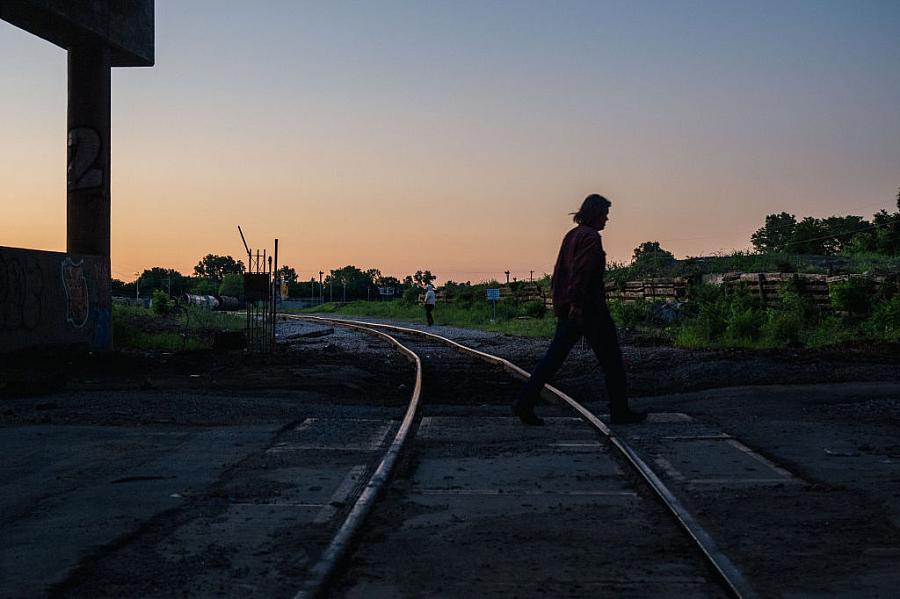Tribal nations in Oklahoma aim to make a difference in mental health care when the state can’t

(Photo by Brandon Bell/Getty Images)
Officer Amy Bennett sits in her police cruiser after her shift as a tribal police officer for the Muscogee Nation after a busy Friday near downtown Tulsa. She and 63 other officers, known as Lighthorse Police, now patrol 11 counties in the wake of last year’s historic U.S. Supreme Court decision in the McGirt v. Oklahoma case, which restored criminal jurisdiction to the tribal nation.
With a larger area to patrol, officers like Bennett now see more people who need mental health care rather than an extended stay in jail or a prison sentence. On the drive back from Sapulpa to Tulsa, Oklahoma, Bennett says that more than half of her calls involve people who need treatment.
"It's just a cycle," explained Bennett through the crackle of the police radio. "They're mentally ill, we put them in jail, they get out."
Bennett explained her frustration with a system that arrests people who are committing crimes because of their mental illness, rather than offering them treatment. Currently, Oklahoma ranks 46th in the nation for mental health spending.
She recalled a case of a 38-year-old man who'd been in the system nearly half of his life because of a treatable illness. In his most recent encounter with Bennett, he tried to take his own life and assaulted his grandfather. Bennett recalls that he was hospitalized for three days, was given medication and sent home. She emphasized that the state of Oklahoma hasn't invested in mental health services in a meaningful way.
She and other officers think it’s not enough and want more trained mental health workers they can call when they suspect someone is in need of help.
Five years ago, Oklahoma voters passed two key criminal justice reform bills: SQ 780 and SQ 781. Both were intended to reduce the high number of incarceration rates in Oklahoma.
According to the Oklahoma Policy Institute, SQ 780 “reduced all simple drug possession crimes to misdemeanors rather than felonies and raised the felony threshold of property crimes from $500 to $1,000,” which would cut down on those entering the state's prison system. SQ 781 directed the state to calculate the savings from reduced incarceration and funnel that money to fund mental health and substance abuse programs.
So far, savings haven't been appropriated to the state's mental health budget.
The Muscogee Nation and four of the larger tribes in the state of Oklahoma are now in a unique position after the McGirt decision. Because they must scale up their criminal justice systems, they have the opportunity to look at prevention, treatment for addiction and mental issues that are the root causes for criminal behavior. Both the Cherokee Nation and the Muscogee Nation have some of the best health care facilities in the state due to their business investments and casino revenues.
Muscogee Nation recently broke ground on a multimillion-dollar behavioral health facility in the town of Okmulgee, Oklahoma. They're also investing money from the federal CARES and ARPA programs towards more mental health treatment programs at all five of their clinics.
In February, the Cherokee Nation proposed legislation that would earmark 7% of the unrestricted revenue generated by Cherokee Nation Health Services, including health insurance claims or billings to health insurance carriers and providers. It is estimated this would provide an annual investment of between $9 million and $12 million in funding for public health programs for Cherokee Nation citizens.
These are just two examples of tribally run mental health care programs that exist in the state.
And these investments not only help tribal citizens, but non-Natives as well.
"We want to get to the root of the problem," said Muscogee Nation spokesperson Jason Salsman.
For my 2021 National Fellowship project, I am going to explore the impact these and other programs have on tribal and non-tribal police during this historic time in Oklahoma.

